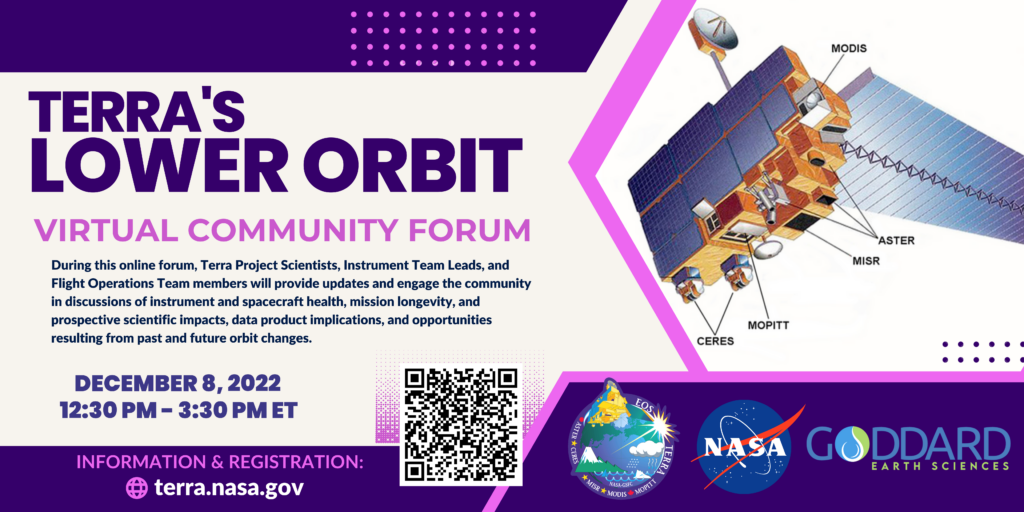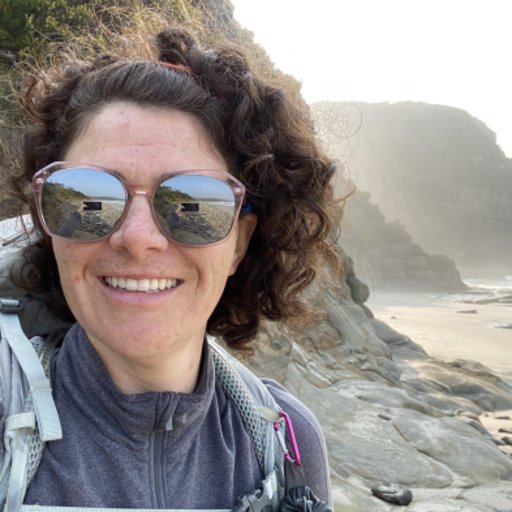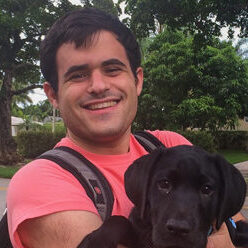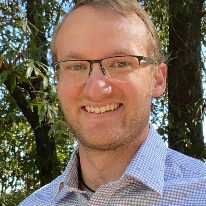From undergoing an orbit lowering to headlining workshops on novel drifting data, Terra has had a big year so far! (And that’s not even accounting for the satellite’s continuous collection of high quality, earth science data, with no unintended interruptions!)
This news post will provide several important updates on recent instrument team meetings, upcoming virtual workshops featuring Terra, and an overview of three early career scientists using Terra data in their research.
Keep checking the website often for more updates and information on all things Terra!
2022 Meetings and Conferences
- The CERES instrument team participated in the Fall 2022 Earth Radiation Budget Workshop in Hamburg, Germany from October 12 – 14, 2022. More information, including an agenda and presentation slide decks, can be found on the CERES website.
- Several members of the Terra team participated in the 22nd William T. Pecora Memorial Remote Sensing Symposium in Denver, CO from October 23 – 28, 2022. More information available on the Pecora 22 website.
- The ASTER instrument team will hold a science and interface meeting in Tokyo, Japan from November 7-9, 2022.
- The American Geophysical Union (AGU) Fall 2022 meeting will be held in Chicago, IL from December 12 – 16, 2022. For more information and an agenda, visit the AGU Fall Meeting 2022 website.
Upcoming Terra Workshops and Community Forums
Here’s a reminder that it’s your last chance to sign up for the virtual Terra, Aqua, and Aura Drifting Orbits Workshop that starts tomorrow, November 1-2, 2022. For more information and registration, visit the Terra website (or register here!).
On December 8th, 2022 from 12:30 PM – 3:30 PM ET, the Terra team will be hosting a virtual community forum on Terra’s recent orbit lowering maneuvers (that took place October 12th and 18th). See the graphic below for more information and a QR code linking directly to the Webex webinar registration page.

Highlighting Two Decades of Terra Talent
Last week, several NASA Early Career researchers presented their current scientific work during the 2022 Early Career Scientist Forum (full agenda linked here).
Kathleen McKee

Explosive Volcanic Eruption Dynamics
Kathleen incorporates data from Terra’s Multi-Angle Imaging Spectroradiometer (MISR) instrument to analyze volcanic ash and aerosols throughout the atmospheric column.
Personal website linked here, and NASA Bio linked below.
Ryan Kramer

Global Radiation Budget and Modeling
Ryan uses data from the Clouds and Earth’s Radiant Energy System (CERES) instrument to improve how climate models handle future precipitation predictions.
Link to Ryan’s Early Career Scientist Spotlight, and NASA Bio linked below.
Andy Feldman

Soil – Plant – Atmosphere Interactions
Andy uses satellite products, like the Normalized Difference Vegetation Index from the Moderate Resolution Imaging Spectroradiometer (MODIS), to analyze how changes in precipitation intensity and frequency impacts plant photosynthesis.
Academic Bio linked here, and NASA Bio linked below.

